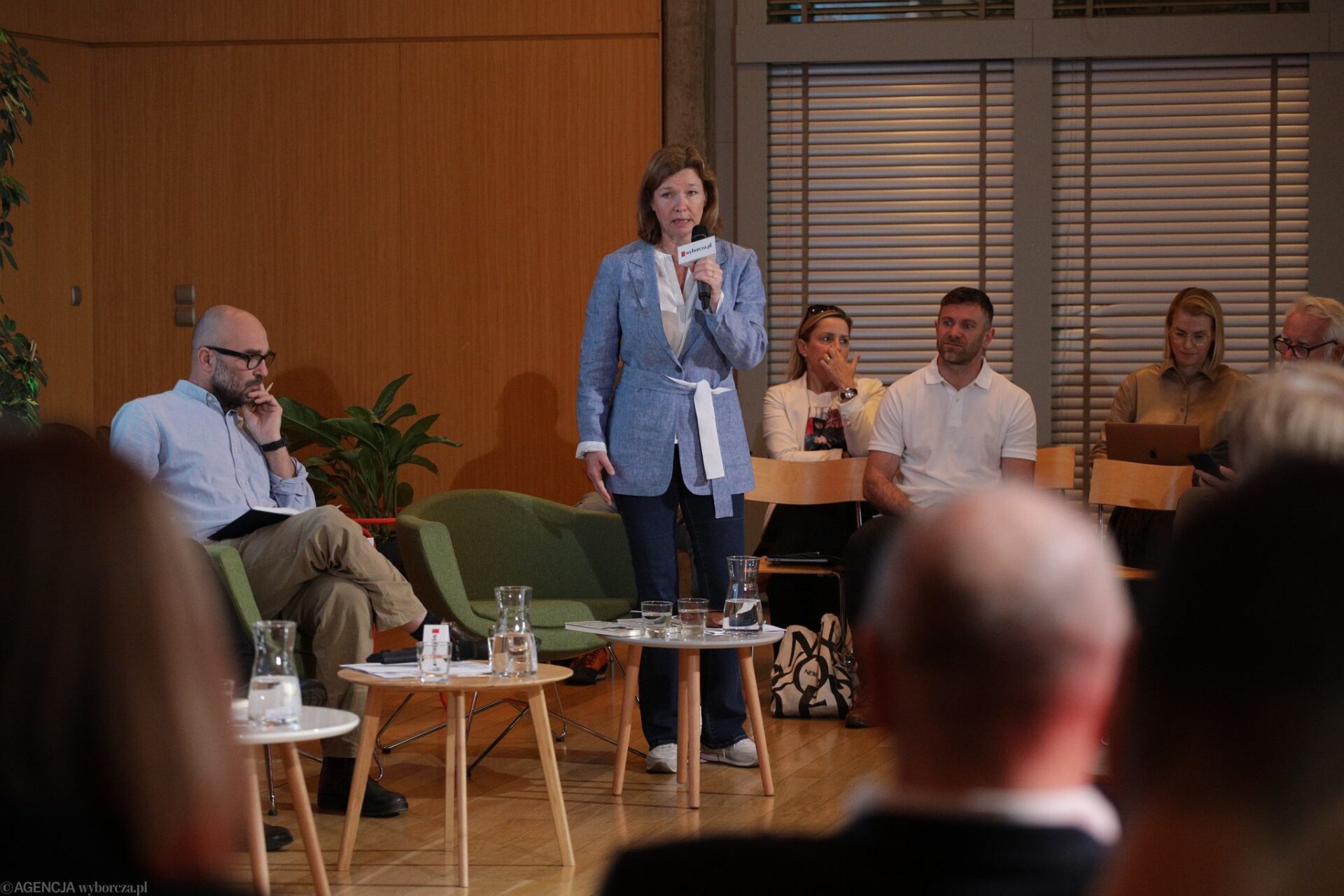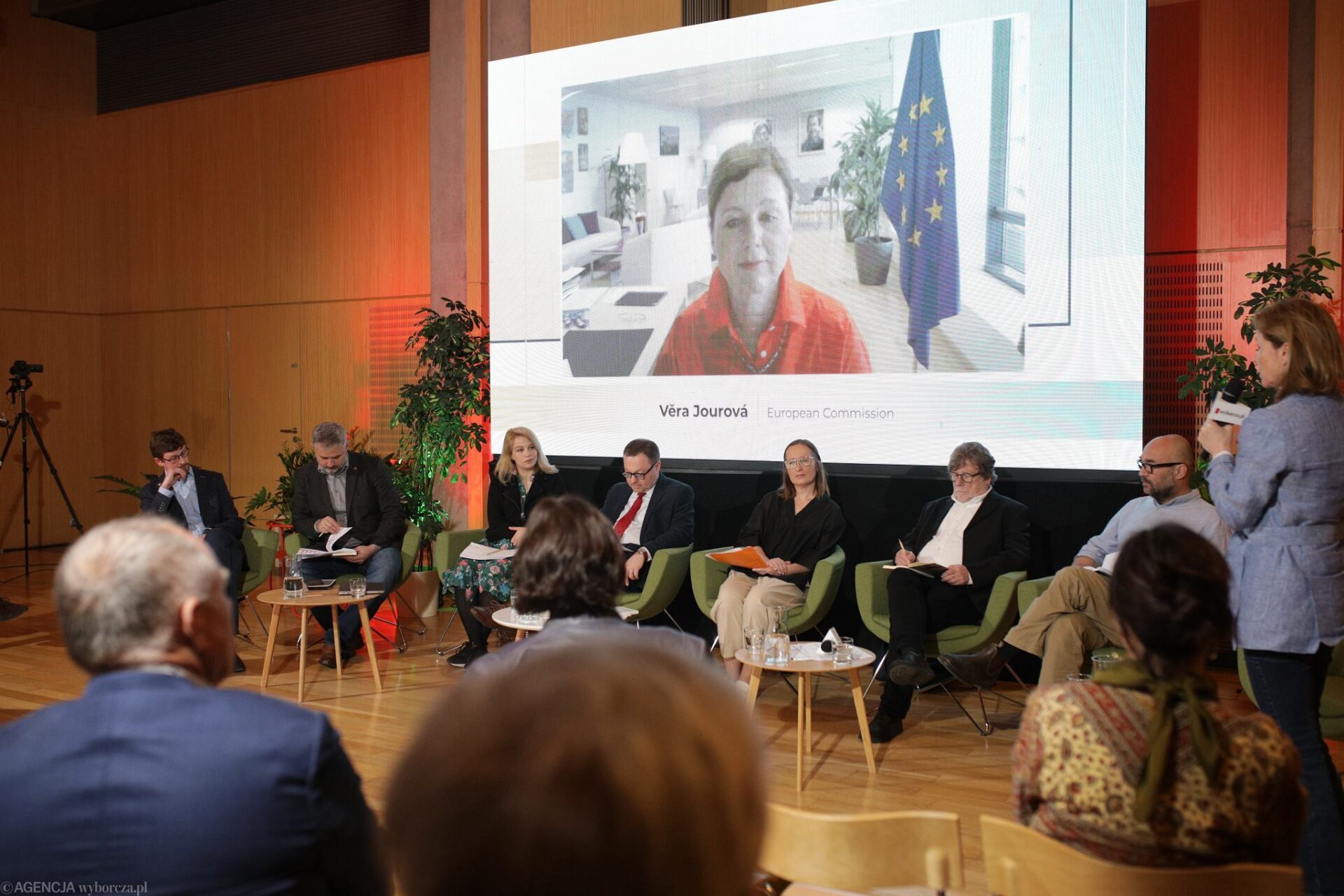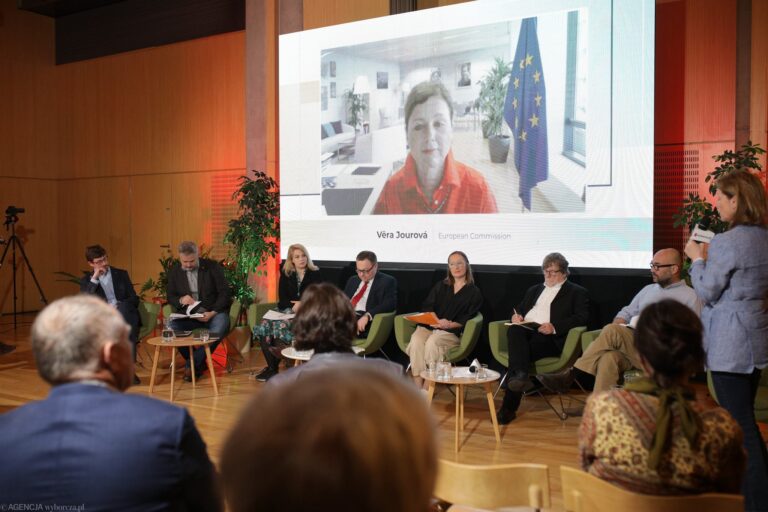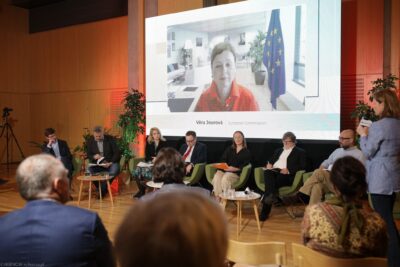A major public survey about media condition in Central Europe shows that media consumers care about the freedom of speech.
The second edition of a major report, Media Freedom Poll, was carried out by a Czech research agency, Median, exclusively for the Bakala Foundation from Prague. The poll shows that Slovaks, Czechs, Hungarians and Poles are concerned about media independence in their respective countries, and that this trend is growing in comparison with the previous year.
The results were presented on Monday, April 24th in Warsaw by Dr Václav Štětka and Tessa Szyszkowitz from the Committee for Editorial Independence who partnered the initiative together with Hungarian Telex, Polish Gazeta Wyborcza and Reporters without Borders.
The results clearly show that public concern about media independence is high in the V4 countries. 51% of respondents in the Czech Republic are concerned about the state of media freedom in their country, 56% in Hungary, 62% in Slovakia and as many as 71% of respondents in Poland. Moreover, according to the authors of the report, this trend is on the rise, as the same question last year noted less concerns among the respondents – in 2022 47% Czechs, 49% Slovaks, 63% of Poles and 48% Hungarians admitted to have been concerned about about the state of the independent journalism in their respective countries.
As the report shows Slovaks and Poles are the most concerned nations in the V4 region when it comes to media independence, however, they see different roots of threats to freedom of expression. In Slovakia it is media owners and business interests, while in Poland (as well as in Hungary) it is the government who presents the biggest threat to media freedom.
What is more, political and business independence of media outlets is highly supported and valued by respondents from all V4 countries. As many as 81% respondents in Slovakia, 81% in Czech Republic, 87% in Poland, and 76% in Hungary think that media independence from political influence is important. Similarly, 81% among the respondents in Slovakia, 85% in Czech Republic, 87% in Poland, and 75% in Hungary value media independence from business and media owners. The vast majority of respondents trust that media freedom should be protected by the local journalistic associations, while the EU institutions are seen as the second most trusted freedom of expression protector. The V4 public also believes that a stronger action against online disinformation should be taking place.

Tessa Szyszkowitz from the Committee for Editorial Independence is presenting poll results. Warsaw, 24.04.2023. Source: Adam Stępień / Agencja Wyborcza.pl
Adam Michnik, former Gazeta Wyborcza editor-in-chief, during the conference compared media situation in the region to the boiling frog syndrome, while European Commission’s Vice-President for Values and Transparency, Vera Jourová (who was present as an online guest speaker) ensured that no country is immune to the current media challenges, and that the new European Media Freedom Act (EMFA), published last September, was designed to tackle the challenge of media capture and it is a minimal proposal to help fight this syndrome, while countries with mature democratic traditions should continue best practices.
“We are not going to demolish things that work, we want to increase the protection where it’s objectively needed. Those who have higher standards should continue and be an example for the others” – Jurova stated during the press conference on Monday.
The research has been carried out on a representative sample of 4023 adult respondents from V4 countries both online and via telephone in March this year.
According to the World Press Freedom Index, a graphical report prepared by the Reporters without Border every year, Poland’s score for media freedom has been falling for the past seven years and is now at its lowest level since 1989, ranking 66th out of 180 countries in the world. A slight rise from 92nd position in 2021 to 85th in 2022 has been marked by Orban’s Hungary, which remains the worst when it comes to freedom of expression among the V4 countries. More optimism in this regard has been performed by troubled Slovakia with 27th position (considered as a major improvement from 35th in 2021) and Czech Republic which managed to rise from 40th place in 2021 to the impressive 20th in 2022. Read more on V4 media Press Freedom Index results here, or check out for the results of Media Freedom Poll here.







